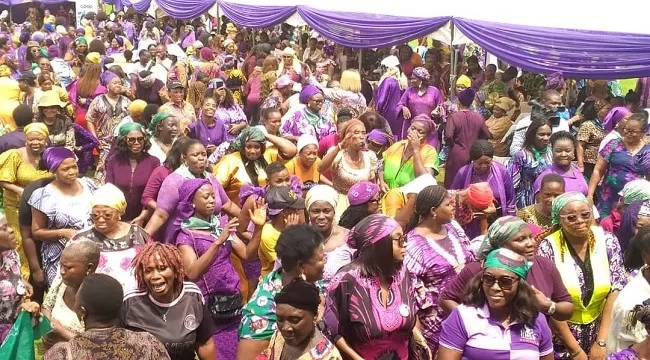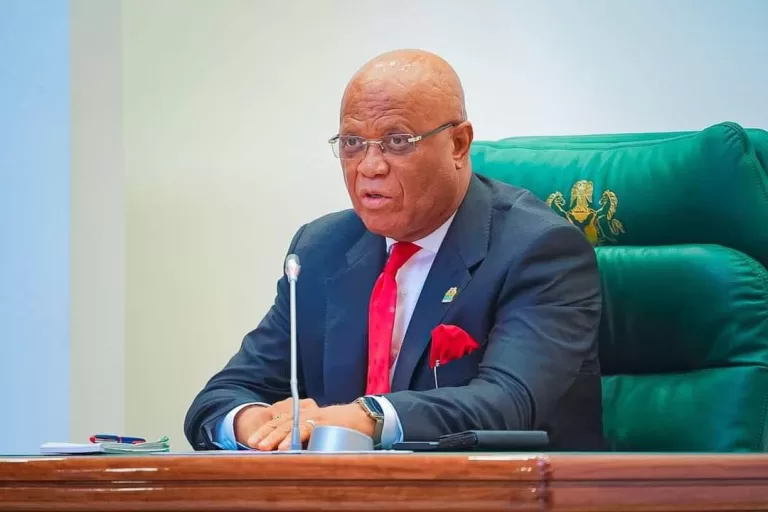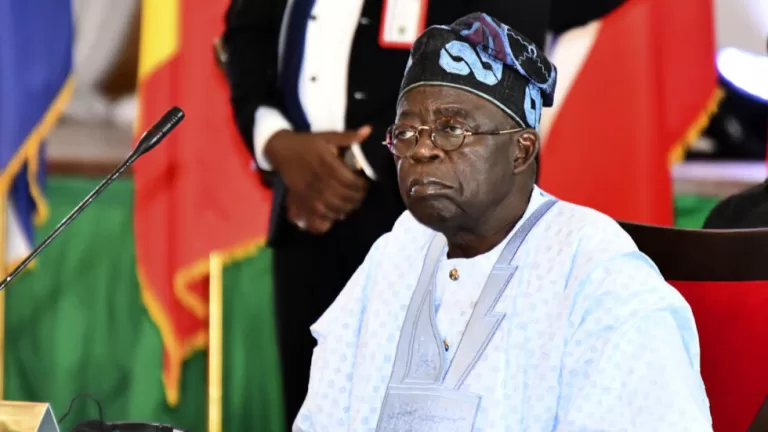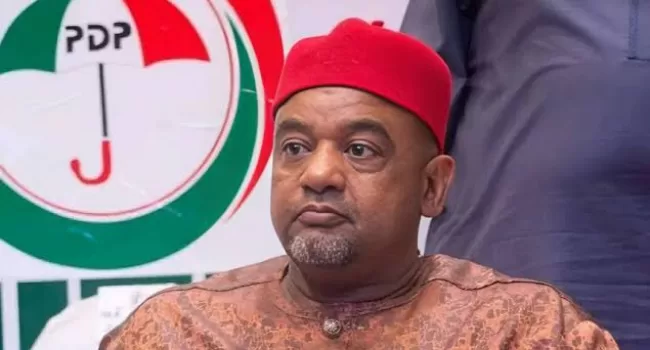
Women rallying in support of suspended Governor Siminalayi Fubara in Port Harcourt on Thursday, April 24, 2024.
In a growing show of grassroots resistance, a coalition of women under the banner Rivers Women United for Sim (RWUS) staged a peaceful demonstration in Port Harcourt on Thursday, calling for the immediate reinstatement of suspended Governor Siminalayi Fubara and the restoration of democratic order in Rivers State.
The demonstrators—numbering in the hundreds—marched through the city’s key roads with placards that read, “Bring Back Fubara,” “Save Our Democracy,” and “God of Justice, Arise for Rivers State.” The protest, which began along Aba Road and moved toward the Government House, was marked by chants of solidarity and appeals for justice.
The women, identifying as wives, mothers, and concerned citizens, directly addressed President Bola Tinubu, urging him to intervene decisively in the political standoff that has rocked the state since Fubara’s suspension in March 2025.
“Rivers State has always been known for peace. We are here because our peace has been disrupted, and our elected governor has been unjustly removed,” one protest leader stated. “We want the president to hear our cry. Bring back Fubara and restore our democracy.”
RWUS is one of several grassroots movements that have emerged in response to what many observers consider an unconstitutional disruption of the state’s democratic processes. The group insisted that Fubara has committed no wrongdoing warranting his removal, and called for all other suspended elected officials to be reinstated without delay.
This is the second major protest within the month. On April 11, hundreds of women also marched through Port Harcourt demanding the reinstatement of both Governor Fubara and his deputy, Ngozi Odu. Their message remains clear: any deviation from the electoral mandate risks undermining the democratic values enshrined in the Nigerian Constitution.
As political tension continues to mount in Rivers State, Thursday’s protest underscores a rising tide of civic activism led by women—long considered the backbone of community mobilization in Nigeria’s political landscape.





